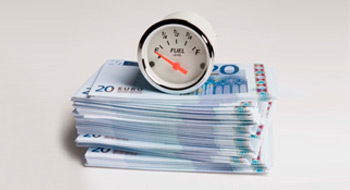
It’s no surprise that headlines in world news have been all about the European sovereign debt crisis—a downgraded credit rating here, a country’s austerity measures there. But wouldn’t it be nice if the eurozone’s leaders followed the advice of Richard Portes, economics professor of the London Business School and founder and president of the Centre for Economic Policy Research.
Portes presented his thoughts on how to fix the crisis—or, at least, how to begin repairing some of its cracks—to members of The Economic Club of Canada yesterday in Toronto.
But first he set the scene. Bond spreads are unsustainable, he began, adding that the Bund (the German government’s federal bond) is the only risk-free asset. No one is buying sovereign euro debt, and the European banks have liquidity issues.
“The major fact is the European Central Bank [ECB] has been in denial over the past few years, and political leadership has been absent,” he said. “It has been unwilling to admit the possibility that a eurozone country could default on its debt. And pretending that was the case has led to some of the major problems.”
The euro creditor countries underlying all of this have effectively been bailing out their own banks by requiring taxpayers of debtor countries to do it for them, Portes explained. For example, Irish banks have been a conduit to funnel German funds into Irish property development, but Irish—not German—taxpayers are taking the hit.
The way out
The only way out, according to Portes, is for the ECB to accept the role of “lender of last resort” (an institution willing to extend credit when no other institution will). The ECB needs to lend to solvent institutions with collateral and commit itself to capping yields for member countries it considers solvent. But the bank needs political backing from French President Nicolas Sarkozy and German Chancellor Angela Merkel. “They have to make case that this is the only way to preserve monetary union,” said Portes.
However, being a lender of last resort is not sufficient, he warned. “That policy can buy time, but it’s not the only thing.” Some countries (for example, Greece, with its widespread corruption) need deep institutional change. And the surplus countries in the eurozone (e.g., Germany) have to be willing to accept a reduction in surplus, while the euro has to depreciate.
Clearly, we’re into a double-dip recession, Portes said in conclusion. “And the lender of last resort proposal is the only way to get out of that while keeping the eurozone together.”
